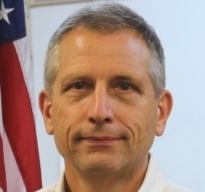De-Risking Intervention Operations by "Understanding the Impact of Environmental Forces on an Operation"
Disciplines: Completions | Drilling | Production and Operations | Projects, Facilities, and Construction
Course Description
This course provides an overview of use/application of TR14 for intervention operations, and basic understanding of fatigue terminology and applications for intervention operations.
Course Objectives:
- Understand the use of TR14 and fatigue screening using TR8
- Understand the interaction for TR14 with other API documents (API-STD-17G, API-RP-17G1, API-RP-16Q and API-RP-2RD)
- Address key considerations for subsea intervention - with respect to:
- Capacities and Load cases
- Global riser analysis
- How GRA outputs feed Well Specific Operating Guidelines
- Importance of fatigue assessment and fatigue screening
Agenda:
- TR14 overview
- Key considerations with relation to SS intervention:
- Common industry questions and
- Misconceptions
- Build a Client level understanding of Riser Analysis process
- Load cases and load classifications
- How the Analysis outputs are used to develop Well Specific Operating Guidelines
- Exercise – Develop operating envelopes and watch circles.
- Build a basic understanding of fatigue terminology using API TR8 & HPHT- Orientations and relevance to intervention operations.
- Exercise – Fatigue screening
- How fatigue screening can be used for intervention operations
- Exercise – Fatigue screening
Learning Level
Intermediate
Course Length
7 hours
Why Attend
Broaden your understanding of impact of environmental loads on well interventions.
Who Attends
Engineers who are users of subsea well intervention equipment during the design and operation, facilities, drilling and completions engineers who enable hardware integration, and production engineers responsible for choosing appropriate operations to solve a subsea well issue.
CEUs
0.7 CEUs are awarded for this course.
Cancellation Policy
All cancellations must be received no later than 14 days prior to the course start date. Cancellations made after the 14-day window will not be refunded. Refunds will not be given due to no show situations.
Training sessions attached to SPE conferences and workshops follow the cancellation policies stated on the event information page. Please check that page for specific cancellation information.
SPE reserves the right to cancel or re-schedule courses at will. Notification of changes will be made as quickly as possible; please keep this in mind when arranging travel, as SPE is not responsible for any fees charged for cancelling or changing travel arrangements.
We reserve the right to substitute course instructors as necessary.
Instructors

Brian Skeels is a Senior Technical Advisor and Technology Fellow with TechnipFMC. He has 43 years of experience in subsea completion hardware design, installation, intervention, and pipeline design. This experience includes:
- 5 years with Exxon Production Research Company working on Exxon’s famous SPS and UMC subsea systems.
- 38 years with TechnipFMC. As a TechnipFMC Senior Technical Advisor, he serves as a technical advocate for new technologies and strategic planning specialist for frontier technologies, HPHT, and remote well intervention, including efforts delving into subsea systems engineering and field architecture, riser and riser-less well intervention, ROV interfaces, remote robotics technology, hydrate remediation, and well plug and abandonment programs.
- 38 years of involvement in API’s Upstream Standards. Brian currently serves on API Subcommittee 17 executive committee. He served as a task group chair for 17G on subsea intervention systems and 17D on subsea tree and wellhead equipment, and 17TR8 for HPHT equipment design.
- Serving on several Industry and professional society conference program boards.
Brian’s registrations and honors include:
- Professional Engineer – State of Texas
- Adjunct Professor – Subsea Engineering at University of Houston
- ASME Fellow, TechnipFMC Technology Fellow
- ASME Titanium Crawfish Award – for technology excellence in the oil industry
- SPE Gulf Coast Section Projects, Facilities and Construction Award
- OTC Distinguished Achievement Award for Individuals
- ASME Gecoa Oil Drop Award – for distinguished and meritorious achievement and service in the field of petroleum mechanical engineering

Ray Stawaisz brings over 40 years of drilling, completion and well intervention experience to the course. He is the current chairman of API 17G1 and supports various other API and task groups.
Other courses by these instructors
Brian Skeels
This 1-day course provides participants with a background review of subsea production control systems and specific knowledge of Intervention Work-Over Control Systems (IWOCS) as they interact with subsea productions systems. This is followed by an in...
(Read More)Disciplines: Management
Brian Skeels
Ray Stawaisz
The course will provide the participant with an improved understanding of well intervention equipment, using historic and the new suite of API well intervention documents.
Course Objectives:
- Develop an understanding of equipment both legacy and new...
Disciplines: Completions | Drilling | Production and Operations | Projects, Facilities, and Construction
Brian Skeels
Ray Stawaisz
The course will provide the participant with an improved understanding of well intervention equipment, using historic and the new suite of API well intervention documents.
Course Objectives:
- Develop an understanding of equipment both legacy and new...
Disciplines: Completions | Drilling | Production and Operations | Projects, Facilities, and Construction
13 Aug 2024
Galveston, Texas, USA
Held in conjunction with SPE Subsea Well Intervention Symposium
Registration coming soon!
Questions?
trainingcourses@spe.org
